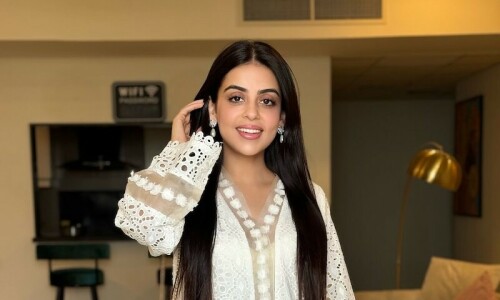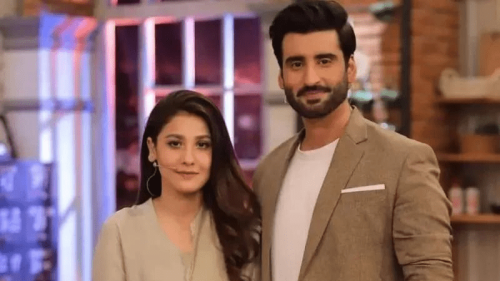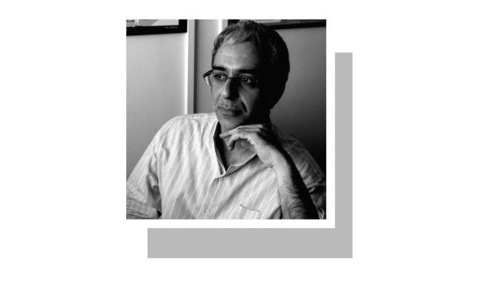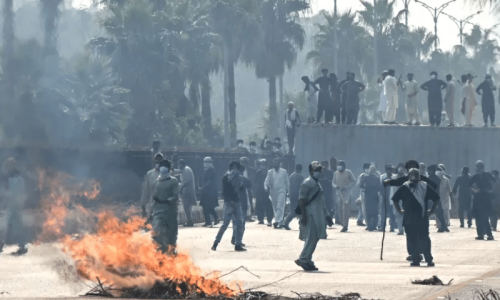ISLAMABAD: Ismat Chughtai’s stories were interpreted dramatically during a session of the 5th Islamabad Literary Festival.
Based on her memoir Kaghazi Hai Pairahan, the basic story line stays fairly true to form, focusing on the plight of a young, spirited girl growing up in a large Muslim family who struggles against conventions and traditions through her early years.
Theatre actor Bakhtawar Mazhar perfectly personified Ismat Chughtai and just a lone bench is what decorated the brightly lit stage.
Ms Mazhar conjured a magnificent narrative of an unconventionally independent girl growing up in pre-partitioned subcontinent who becomes a source of worry and concern for her family who want to subdue her aggressive resolve and tame her in the name of societal norms. However, with the support of her older brother, she finds herself engrossed in literature and attempts to write her own passages. It is only when she meets a rebellious Rashida Apa is when her life, expression and writing transforms.
Ms Mazhar depicted Ismat Chugtai’s life with her vividly ingenious monologue, her expressively resounding voice that was layered with subtle innuendos.
She offered variety of touching feminist, comic passages, and intensely dramatic questioning of societal customs while staying true to every detail of Ismat Chugtai’s life.
Mirrored in Ms Mazhar’s performance, Chugtai’s memoir reflected on a time where women characters in Urdu literature were depicted as objects of beauty and admiration that existed only to be the fancy of the male protagonist.

Breaking from this established standard of a female literary figure, Ismat Chughtai’s character was mirroring Rashida Apa.
“Intentionally or unintentionally, I penned down each of my characters as if she was Rashida Apa. Even while knowing I could never entirely do justice to her. Since childhood, I despised the notion of a damsel in distress, yearning for the support and sympathy of a man – dedicating her life in faith and submission to a man and ultimately to die in the name of love. This, depiction of an ideal Eastern woman, was intolerable to me,” Ms Mazhar read.
There were also subsequent performances by Syed Meesam Naqvi and Fawad Khan which were based on Ismat Chugtai’s short stories, Ghoonghat and Amar Bail.
Both the stories, depicted women from an era where men would reduce them to the dimension of a beautiful creature that existed for their pleasure and submission while assuming themselves to being proud, egoistic and gratifyingly superiors.
Meesam Naqvi, with a firm, imposing voice, proficiently conveyed the idealism of men. He commanded the stage even while shifting through different characters and voices. Without faltering, he switched his expressions, his intonation and enacted a story of how one man’s insecurity and ego tarnished the life of a beautiful young girl who, in her modesty and restrain, was simply unable to lift her veil in front of her husband. And, as a consequence, was subjected to a life of loneliness, ridicule and passiveness.

Fawad Khan brought to stage a decisive presence of an expert spell-bounding storyteller. Through his authoritative command on language and expression, he showcased the domineering yet greatly insightful tension the two genders may have shared a few generations ago. The age-gap, gender oppression, reality versus illusion, cursed beauty and the capriciously deceiving roles of marriage were portrayed with ease and enthusiasm that had an entire hall clinging to each dialogue.
Dastangoi, was an emotional rollercoaster ride that had the audience both amused and intellectually stimulated. It was a tribute to Ismat Chughtai, literary feminism and the roles women have adorned in the name of society, norms and traditions.
Published in Dawn, April 17th, 2017














































